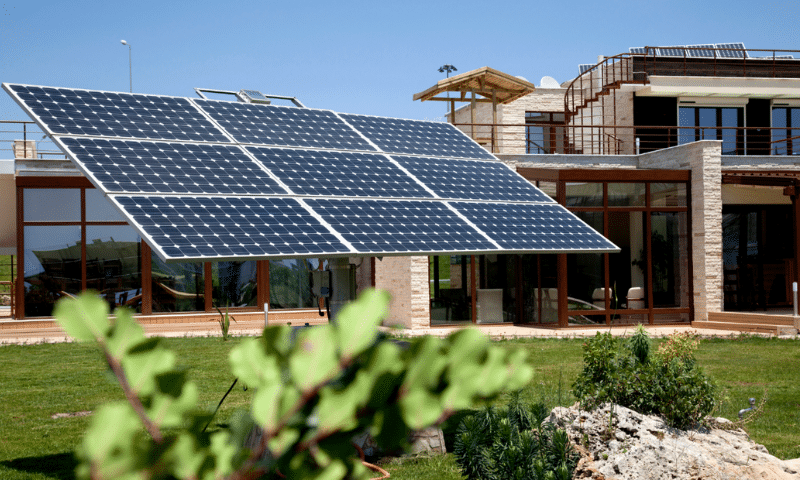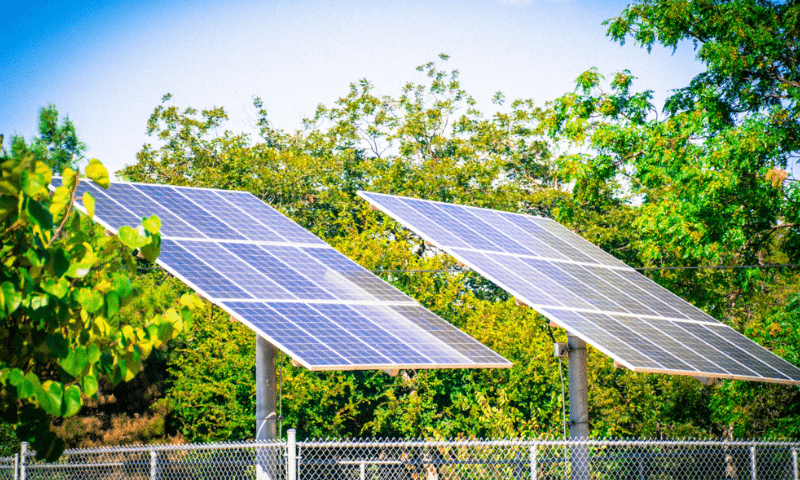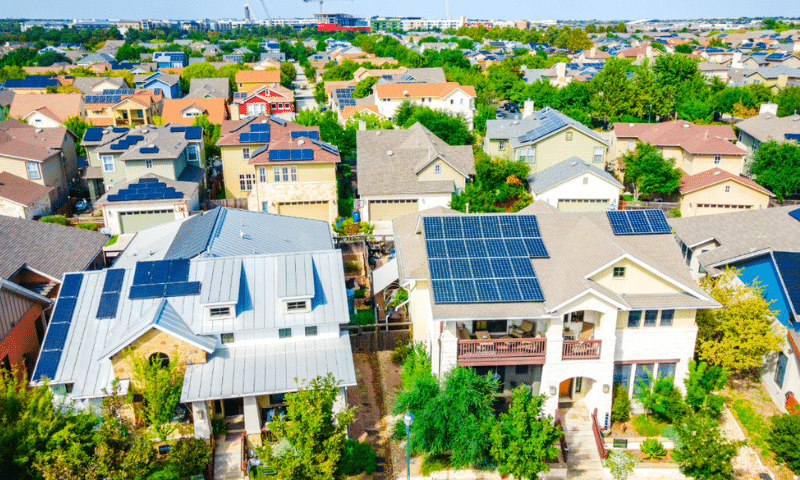
Climate change has been a hot topic for many years. It is a topic that is complex and can be quite overwhelming for governments, businesses and industry, and the average citizen. There are so many theories surrounding Climate Change, and the depth of its real impact is still a mystery.
Our planet is experiencing a lot of major changes, and while a global shift in the way we approach many facets of industry is much needed to mitigate the deadly effects of climate change, there are still some things we can do at home.
Exploring renewable energy sources, such as solar, is one way individuals can reduce their personal impact on the environment. For those interested in understanding how solar energy can be integrated into their homes, obtaining free solar quotes from Energy Matters offers valuable insights without any commitment, helping you make informed choices in aligning your lifestyle with sustainable practices.
Let us discuss how renewable energy, such as solar, can reduce your personal impact on the environment.
Energy Matters has been a leader in the renewable energy industry since 2005 and has helped over 40,000 Australian households in their journey to energy independence.
Let us discuss and choose the best quote that suits your needs and budget, and we can connect you with our trusted local installers, who will provide up to 3 FREE quotes for your home and business solar energy system. Get your free quotes today!
The reduction of greenhouse gas emissions is one of the most notable advantages of solar energy. The most effective thing we can do to save the environment is by reducing our own carbon footprint.
There are hundreds of ways that we can do this, but switching to renewable energy sources is by far the most effective way.
When we maximise the sun as an energy source for our homes, we reduce our dependence on fossil fuels – which has been noted as one of the greatest negative impacts on our environment and climate. You can also save money on utility bills, as well as take control of your energy consumption. On top of that, you play your role in protecting our planet by conserving energy and reducing CO2 emissions.
Before we discuss the ways in which investing in a solar PV system can minimise your own carbon footprint, let us first discuss the basics of a ‘carbon footprint’.
What is a carbon footprint?
The basic definition of carbon footprint is the measure of greenhouse gases emitted as a result of human activity, such as electricity generation, transportation, and manufacturing. It is vital to understand the basics of a carbon footprint as it can have a huge impact on our climate.

So what makes greenhouse gases harmful to the environment?
Examples of greenhouse gases are carbon dioxide, methane, ozone, and water vapor. These gases trap heat from the sun, which causes our planet’s atmosphere to be warm – also known as the greenhouse effect. Yes, these gases are essential; however, they cause the Earth to warm as their concentration continues to increase.
How do you calculate your carbon footprint?
You can calculate your carbon footprint by monitoring the emissions from every activity you do in a single day. This covers activities like flying in an aeroplane, driving your car to work, including electric vehicles, using electricity, and even using your phone. We convert the emissions into an estimate and then measure how much those emissions take place on a global scale. The easiest way to calculate your carbon footprint for a specific activity or timeframe is to use a free Carbon Footprint Calculator.
Reducing your own carbon footprint with solar energy

Without a doubt, solar energy is the most promising renewable energy today. Solar energy helps minimise your home’s carbon footprint, and it’s sustainable energy that you can use for many, many years. Solar panels convert sunlight into energy, and this energy is used to power your home or business. When you switch to solar energy, not only do you minimise your dependence on fossil fuels, you bring your home energy independence as well.
Your solar PV inverter only generates 48grams of co2/per kWh, while roof solar emits only 41. These numbers make solar energy an ideal source to combat the effects of climate change as it emits the lowest carbon footprints.
The Energy Savings Trust reported that an average home with a solar PV system might reduce carbon emissions by at least 1.3 – 1.6 tonnes/year. To give you a better idea, 1.3 tonnes of carbon emissions is as many as 600,000+ of charging smartphones or 2270+ litres of petrol.
Additionally, solar power minimises water pollution since PV systems will not need water to function compared to other manufacturing processes. Solar PV systems operate without polluting the planet’s waterways, unlike coal-fired power plants.
Additional ways to minimise your carbon footprint at home include eating organic food, flying less, unplugging devices, driving less, or line drying clothes. You can find out more handy tips on how you can save on your electricity bills here.
While the environmental benefits of solar energy are widely recognised, it is essential to consider the carbon footprint of solar panel manufacturing as well. The production of solar panels does require energy and resources. Still, studies have shown that the emissions generated during the carbon footprint of solar panel manufacturing are offset within a short period of panel operation, often within the first year or two. Therefore, when evaluating the overall sustainability of solar power, it is crucial to take into account the lifecycle analysis, which includes the energy savings and emissions reductions achieved throughout the panels’ operational lifespan. By harnessing the power of the sun, individuals can actively contribute to a greener future while reducing their own carbon footprint.
Why you should care about your own carbon footprint

2020 saw the average Australian produce 15 tonnes of CO2. While the average per capita has been trending down since 2007 (previously 19 tonnes per year), Australians still have work to do to bring down our environmental impact. The sustainable standard of carbon emission per person is only 3 tonnes per year.
Each of us has to care about our own carbon footprint; one simple way to do this is by monitoring our daily activities that emit carbon emissions. By practising a positive change of lifestyle, you can set the right example for others to follow.
Most importantly, by learning about the ways you can reduce your carbon footprint, you play a part in slowing down climate change.
Reduce your Carbon Footprint with Energy Matters today! We have a network of local and trusted installers with the experience to install the best system for you and your home/business. You can get up to 3 FREE, no-obligation quotes by completing our quick survey.
Get your solar quotes today. You may call our friendly team and get obligation-free advice from Australia’s solar experts.
Still can’t afford to switch to solar power?
Are you considering getting solar panels but are currently short on funds? You can still invest wisely, and Energy Matters can help you.
Powow and Energy Matters have teamed up to provide consumers with an alternative to switching to solar power and battery storage.
The biggest obstacle to installing solar and battery storage is typically finance. With Powow’s PPA and VPP, our customers will have a $0 upfront option and financial stability in the uncertain energy market.
Get up to 3 obligation-free quotes by getting in touch with us right away. Find out what payment plan options suit your needs and budget!
Check out our page for Powow: Power Purchase Agreement (PPA) and Virtual Power Plant (VPP).















































